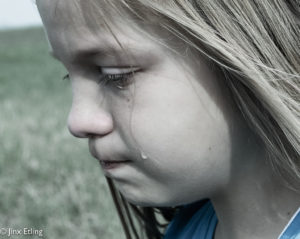Developing Social Intelligence
Some children find social intelligence a natural and easy process and for others it can be much more challenging.
Do you sometimes get stuck in knowing how to help your child understand social situations?
For some children they need much more coaching but for all kids there is a key concept which they need to understand in all their relationships.
This concept is called Social Behaviour Mapping©, developed by Speech Language Pathologist, Michelle Garcia-Winner, founder of the excellent website SocialThinking.com
I love the work of Michelle Garcia-Winner because it is concrete, descriptive and non-judgmental.
For example, when a child engages in an inappropriate behaviour, instead of calling it “inappropriate” she recommends that they be taught that this behaviour is UNEXPECTED versus EXPECTED
and then the next part is the social intelligence code…
What Is The Social Intelligence Code?
When a child does something unexpected others will have thoughts and feelings about this person’s actions…
Others will then take action based on their thoughts and feelings…
Here’s a example for a younger child and an example of an older child:
Younger Child Example (Scenario 1):
Unexpected Behaviour: Austin cheats in a tag game at recess and says he didn’t get tagged when the other kids clearly saw him get tagged.
Thoughts & Feelings of Others: The other kids think Austin is cheating and feel angry with him.
Actions of Others: They keep playing tag and even if Austin continues to join in, they ignore him and don’t even try to tag him anymore. They don’t want to be around him.
Now how does Austin feel? He feels ignored and alone.
Austin may figure it out on his own or he may need someone to explain to him that by choosing the unexpected behaviour of cheating, he has chosen to have other kids be mad at him, and not want to be around him.
To develop social intelligence, it’s important to compare the unexpected behaviour path with the expected behaviour path..
Younger Child Example (Scenario 2):
Expected Behaviour: Austin and his friends are all playing tag at recess. Austin gets tagged and now he’s “it” and he tries to tag someone else.
Other Kids’ Thoughts & Feelings: This is a fun game. Austin is fun to play with. We feel good playing with him.
Other Kids’ Actions: We like playing tag with Austin and we’re going to continue to interact with him and try to deek him out when he tries to tag us.
How does Austin feel? Happy. He’s having fun playing with his friends.
Older Child Example (Scenario 1):
A group of teens are all working on a school project together.
Unexpected behaviour: Tammy is not taking part in the group discussion. She is on her phone the whole time. When the others try to include her and ask her what part of the group project she wants to do, she says it doesn’t matter because she always has to do the worst part and that no-one ever listens to her.
Other kids’ thoughts and feelings: We’re trying to include Tammy and all she’s doing is making it really difficult for us to work with her. We feel very annoyed with her.
Other kids’ actions: Ignore Tammy and assign her a small insignificant role in the group project.
How does Tammy feel? Rejected, angry, sad…
Tammy needs someone to help her realize that her unexpected behaviour is creating her reality. She is responsible for the choices she’s making – it is not being done to her.
Older Child Example (Scenario 2):
Expected Behaviour: Tammy takes part in the group discussion. She may feel insecure or shy but she is letting the group know her preferences for which part of the project she would like to work on.
Other kids’ thoughts and feelings: Tammy is quiet but we’re glad she’s telling us what she would like to do and we’re happy she’s in our group.
Other kids’ actions: They chat to Tammy and work with her on the project.
How does Tammy feel? Included, happy….
Social intelligence is always a work in progress, but understanding this map of the two pathways empowers a child to make choices with the knowledge of how his/her choices impact others.
Here’s a summary of the social intelligence code (social behaviour mapping© by Michelle Garcia-Winner):
Unexpected behaviour —> Others have negative thoughts/feelings –> Others take action to stay away –> Child feels upset
Expected behaviour –> Others have positive thoughts/feelings –> Others like to be around this child –> Child feels happy
I’m sure you can also envision how you could use this map to explain unexpected behaviours vs. expected behaviours in the home too with interactions between siblings and interactions between parent and child. This map helps us to use our “I” feelings to explain how we feel about our child’s course of action.
If you have a younger child (age 5-10yrs.) you may wish to order You Are A Social Detective by Michelle Garcia-Winner , Pamela Crooke and Kelly Knopp which further explains expected and unexpected behaviours through a comic-style book. (I really think every elementary school teacher, Kindergarten – grade 5, would benefit from reading this book to their class.)
You may also be interested to read my previous articles on Handling Sibling Rivalry or Teasing/Taunting from Peers, Does Fair Mean Equal? and The Drama Triangle– the victim, the rescuer and the persecutor.
Have a wonderful week developing social intelligence,
Warmly,

PS. If you found this article valuable, please share with your friends/family and I’d love to connect with you on Facebook, Instagram, and Twitter. I look forward to keeping in touch with you 🙂
PPS. Photo Credit: WindRanch Flickr Creative Commons
Want to Connect?
Subscribe now to receive free weekly parenting tips and inspiration.







